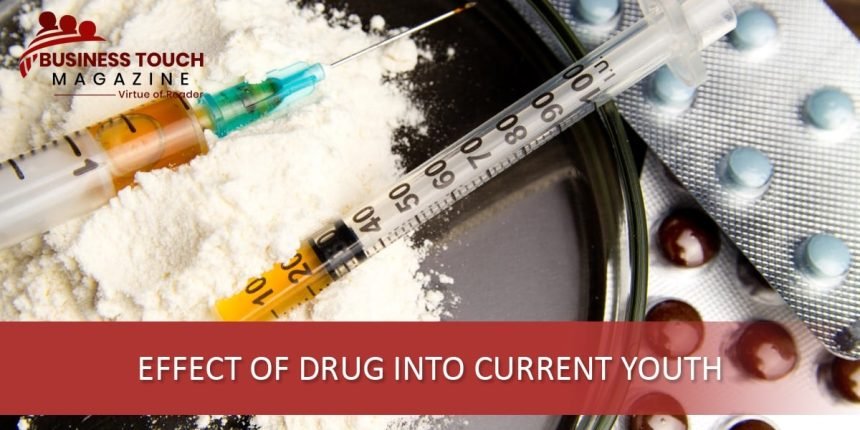Every year, the number of cases of people who abuse drugs increases. The increase in this number is mainly among the youth or the younger generation. There are several ways in which the abuse of drugs can affect the health of a young person, negatively. This can hamper the mental growth of the young as the time of adolescence is the period in which a person develops most of his/her understanding. It could also lead to behavior changes and other mental disorders.
Why the use of drugs causes more damage to the younger brains
Some human brain research has tried to pinpoint the changes that occur during adolescence. Researchers have discovered that teenagers experience enormous growth spurts in both physical and intellectual development; however, the detrimental health impacts of teen substance usage can disrupt these critical processes at precisely the wrong time.
Some functions evolve at varying speeds as the brain develops.
A teenager’s pleasure centers develop faster than the areas of the brain involved in decision-making and risk appraisal.
It’s no secret that kids can be reckless and unaware of the implications of their behavior. During these formative years, drug and alcohol experimentation is generally at its peak.
Teens are more prone to see drug use as having social benefits (such as being accepted among peers or feeling more sociable) than as having negative consequences. If you’re concerned about a teen you know abusing substances, get help and support from a treatment center.
Why Is Substance Abuse Harmful To The Brain?
It is critical to maintain a strict degree of healthy conduct during the teenage years in order to sustain healthy brain function as an adult. Drug usage can have a short-term impact on the brain’s ability to function as well as inhibit appropriate growth and development in the long run.
Addiction has an impact on a teen’s brain development by:
- Interfering with neurotransmitters and causing damage to brain connections
- Taking away one’s ability to enjoy pleasure.
- Memory issues are being created.
- Resulting in missed opportunities during a period when learning potential is at its peak.
- Incorporating bad habit expectations into brain circuitry.
- Perceptual abilities are being hampered.
Social And Professional Consequences Of Teen Substance Abuse
Aside from the physical dangers of juvenile drinking and drug use, there are a slew of other effects that can follow teens into adulthood. There are many negative consequences of substance addiction that go far beyond the pharmacological and physiological components, because it can cloud cognition and encourage reckless actions.
Here are a few examples:
- Emotional issues. Anxiety, despair, mood swings, suicidal thoughts, and schizophrenia can all be caused or masked by drug usage. In fact, 34.6 percent of youth with serious depression say they use drugs. Unfortunately, substance abuse can exacerbate the severity of these mental issues. Teens who use marijuana on a weekly basis, for example, have a twofold increased risk of despair and anxiety.
- Problems with behavior. Adolescents who use drugs are more likely to experience social issues, sadness, suicide thoughts, and violence. Those who abuse drugs are more likely than teens who do not abuse drugs to participate in delinquent behaviors such as fighting and stealing, according to a recent poll by the Substance Abuse and Mental Health Services Administration.
- Dependency and addiction: According to studies, the younger a person starts taking drugs, the more likely they are to have a substance abuse issue and relapse later in life.
- Dangerous sex: Teens who take drugs are five times more likely than those who do not to have sex. Teens who use drugs are also more prone to engage in unprotected sex and engage in sex with strangers. STDs, teen pregnancy, and sexual assault are all increased as a result of this.
- Diseases: Teens who use needles to consume drugs are more likely to contract blood-borne illnesses such as HIV, AIDS, and Hepatitis B and C.
- Injury to the brain: Teen drug usage can lead to major mental illnesses or irreversible brain or nervous system damage. Brain shrinkage, poor learning capacities, amnesia and memory problems, impaired thinking, perception, and intuition, increased or decreased socialising, and changes in sexual desire are all examples of brain damage in youth who take drugs.
- Automobile collisions: Drug-abusing teenagers are more likely to be injured or killed in car accidents. According to one study, THC is detected in 4 to 14% of drivers who are injured or killed in car accidents.
- Effects on Physical Health: Accidental injuries, physical deformities and diseases, and the impacts of accidental overdoses are just a few of the health-related repercussions of youthful substance usage. Youth who use alcohol and other drugs in large numbers are at a higher risk of death through suicide, homicide, accidents, and disease.
The Drug Abuse Warning Network (DAWN) study reports trends in patients seeking emergency department treatment for illegal drug use or nonmedical use of legal pharmaceuticals in a representative sample of hospitals across the United States. According to preliminary 1994 figures, drug-related emergency room visits among teenagers aged 12 to 17 increased by 17% between 1993 and 1994. This increase was bigger than any of the observed increases for older age groups. Between 1993 and 1994, emergency department visits connected to marijuana/hashish for teenagers aged 12 to 17 increased by 50%. (McCaig, 1995). In 1993, 91 young people aged 12 to 17 died as a result of drug usage (Office of Applied Studies, 1994).
Drug side effects on health
Drug abuse can lead to addiction, severe disability, sickness, and even death. The following are some of the health hazards associated with commonly used drugs:
- Cocaine is linked to an increased risk of heart attack, stroke, and seizures.
- Ecstasy carries the risk of liver and cardiac failure.
- Long-term use of inhalants can cause harm to the heart, lungs, liver, and kidneys.
- Marijuana causes risk of memory, learning, problem-solving, and concentration impairment; risk of psychosis later in life(schizophrenia, hallucination, or paranoia) associated with early and regular use.
- Long-term or high-dose usage of methamphetamine can lead to psychotic behavior.
- Overdosing on opioids can cause respiratory discomfort or death.
- Vaping (electronic cigarettes) causes exposure to hazardous compounds similar to cigarette smoking; danger of nicotine addiction.




